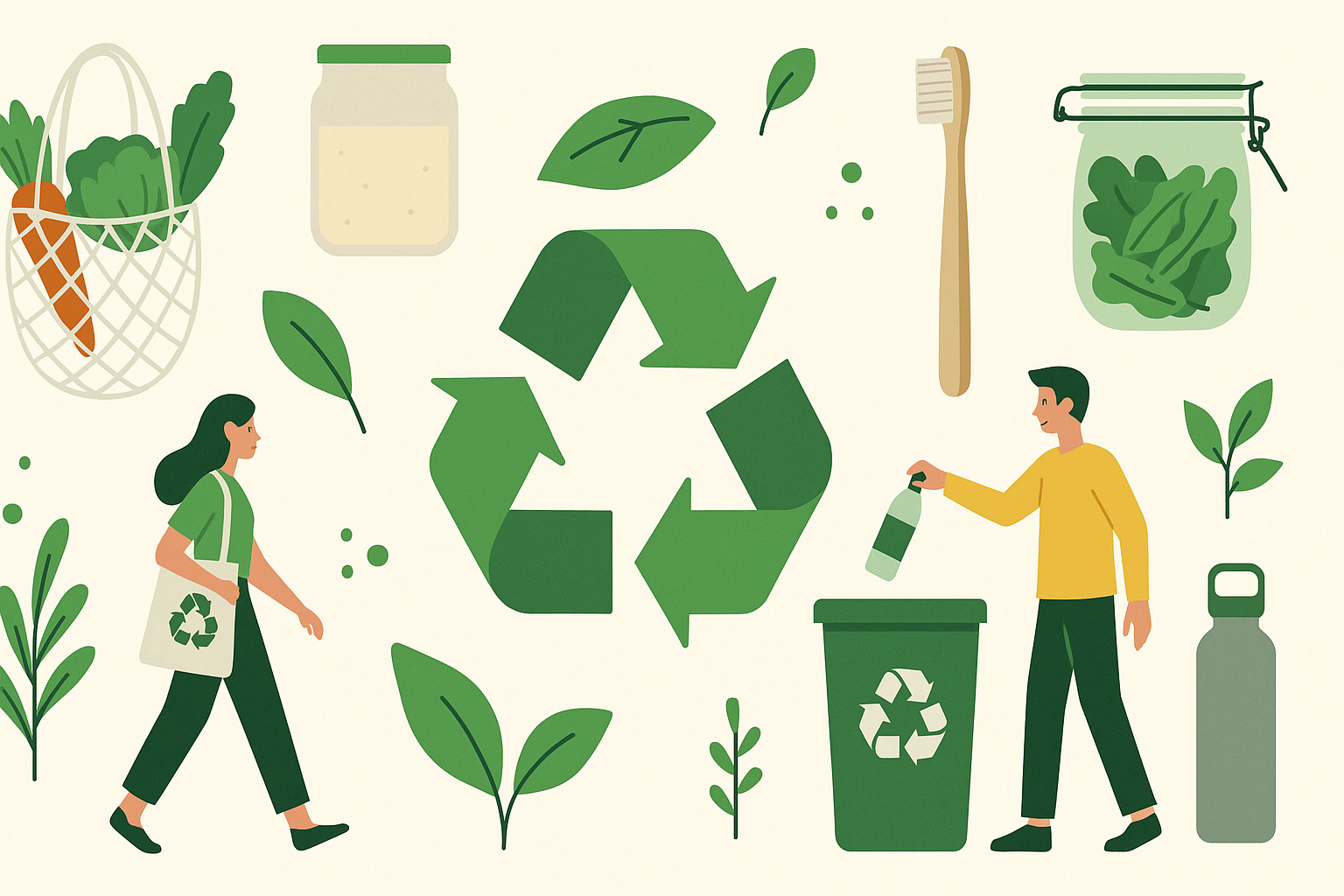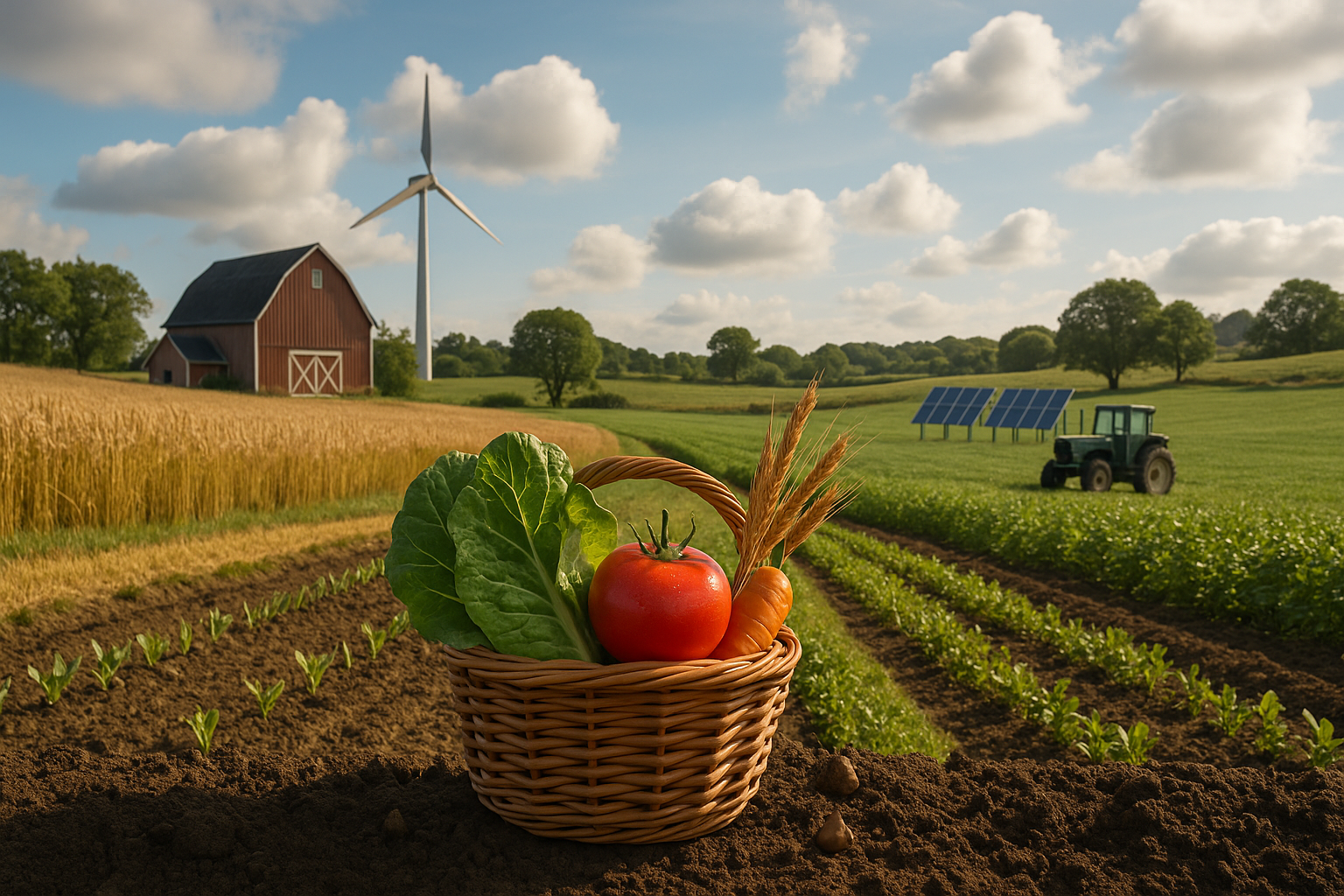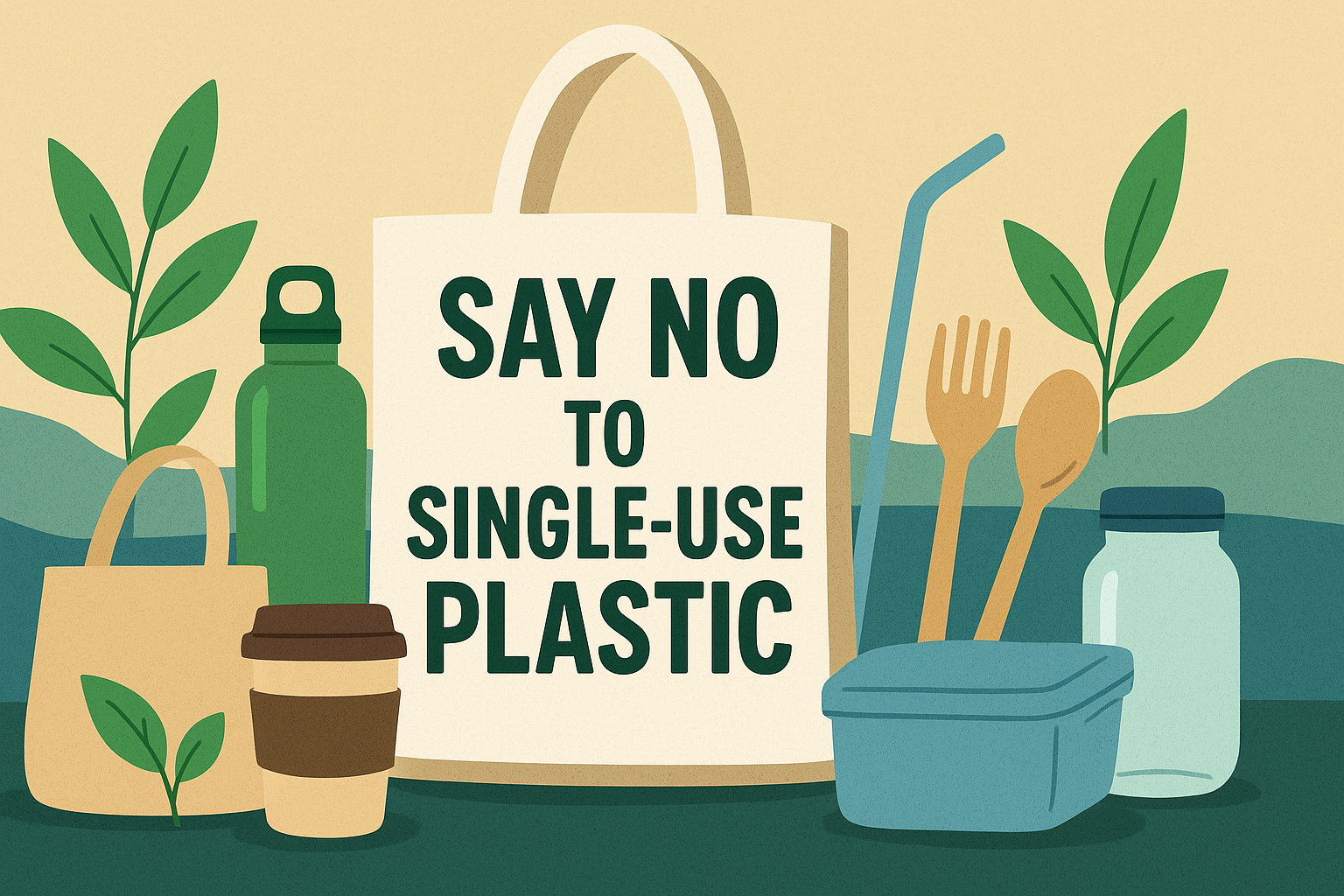Waste is currently one of the biggest environmental problems which we are faced with in today's world. Plastic packaging and wasted food, computer hardware and clothing are all products that keep mounting on our planet at a menacing pace. The World Bank informs us that over 2 billion tons of municipal solid waste are generated globally each year, and this is expected to double dramatically unless something is done about it.
Waste reduction isn't just saving the planet - it's also reducing costs, preserving resources, and building a sustainable future for ourselves and future generations. The great news is that small lifestyle changes can have a big impact.
Here we discuss why waste reduction is important, practical tips you can start with today, and practical advice on how to make your journey to zero waste less daunting.
Why Does Waste Reduction Matter?
Let us learn why waste reduction is important before we proceed with the solutions:
• Global Warming: Waste sent to landfills produces greenhouse gases like methane that contribute to global warming.
• Conserving Resources: Manufacturing new products uses raw materials, energy, and water. Waste reduction saves these natural resources that are limited in supply.
• Health Gains: Reduced waste equates to fewer landfills and fewer incinerators, resulting in less air and water pollution, which has a direct positive effect on human health.
• Economic Savings: Curbing waste saves production costs, garbage collection, and encourages recycling industries.
Best Means to Lessen Waste
Below are efficient and useful tips on reducing waste in daily life:
1. Follow the 5Rs: Refuse, Reduce, Reuse, Recycle, and Rot
Sustainable living is based on this.
• Refuse: Refuse unnecessary packaging, single-use plastics, and unwanted products.
• Reduce: Buy only what you need and products with lower packaging.
• Use reusable water bottles, cloth shopping bags, and containers instead of their disposable versions.
• Recycle: Dispose of your trash properly so that recyclable waste will not end up in the landfills.
• Rot: Compost kitchen scraps and garden clippings instead of throwing them away.
Example: Instead of buying many plastics water bottles, invest in a decent stainless-steel bottle.
2. Cut Single-Use Plastics
Single-use plastics are among the largest sources of worldwide pollution. Some easy substitutions can make a big difference:
• Bring your own shopping bag instead of using plastic bags from supermarkets.
• Use bamboo toothbrushes in place of plastic toothbrushes.
• Use glass jars or steel containers instead of food storage in plastic.
• Say no to plastic straws and use a reusable metal straw instead.
3. Shop Smart and Sustainably
Every time we go shopping, the environment incurs a cost. Here's how you can shop responsibly:
• Purchase in bulk to reduce packaging.
• Shop from local markets instead of supermarket produce with excessive packaging.
• Choose products made from recycled or sustainable materials.
• Spend money on hardy, high-quality products that will last for longer.
Tip: Ask yourself, "Do I really need this?" prior to buying something new.
4. Less Food Waste
Food wastage is a global problem - mountains of good food are wasted on a daily basis. Here's how you can do your part:
• Meal planning to avoid buying too much.
• Storage of food to extend its lifespan.
• Getting creative with leftovers in a bid to prepare new foods.
• Donating excess food to nearby homeless shelters or food banks.
• Composting vegetable and fruit peels rather than throwing them away as garbage.
5. Go Digital Wherever Possible
Technology can help us minimize paper and packaging waste:
• Make the transition to electronic billing and statements instead of paper.
• Use e-books and PDFs instead of printing out unnecessary documents.
• Exchange notes and papers digitally in order to reduce paper use.
6. Exercise Minimalism
Minimalism is not just a design style - it's a way of life that means living with fewer possessions and enjoying what you truly require.
• Clean your house and donate unused items.
• Don’t make impulse purchases and spend only on essentials.
• Spend on quality instead of quantity when purchasing merchandise.
7. Recycling as a Habit
Recycling is one of the easiest ways to reduce waste, but it has to be carried out in the right way:
• Sort your trash into biodegradable, recyclable, and non-recyclable items.
• Rinse containers before recycling to prevent contamination.
• Find local recycling centers and know what materials are accepted.
8. Composting Your Organic Waste
Instead of dumping kitchen waste and garden residues into landfills, compost:
• Composting converts waste from organic materials to nutrient-rich fertilizer for plants.
• It prevents methane emissions from landfills.
• You can have a home or garden compost bin.
9. Opt for Eco-Friendly Transportation
Indirectly, transport is helping to create waste and pollution in the environment:
• Use public transport, carpooling, or bike where possible.
• Walk short distances instead of driving.
• Maintain your car properly to improve fuel efficiency.
• Make a change to electric or hybrid cars for a greener lifestyle.
Advantages of Waste Reduction
Waste reduction benefits you, the earth, and the economy. Here's how:
Environmental Advantages
• Less ocean, air, and soil pollution.
• Less release of greenhouse gases.
• Preserves natural ecosystems and fauna.
Economic Gains
• Saves you money by not spending on unnecessary items.
• Supports green businesses and recycling industries.
• Saves municipalities money from wastage management.
Personal Gains
• Creates a cleaner, healthier environment.
• Encourages mindfulness and thoughtful living.
• Promotes creativity through upcycling and repurposing.
Easy Tips for Speedy Action
• Bring your own bottle and bag.
• Refuse to use plastics that are used only once.
• Buy things in bulk to reduce wastage of packaging.
• Write or recycle instead of throw away.
• Compost at home.
• Instead of printing, use electronic receipts and documents.
• Choose sustainable products and local brands.
Conclusion
Reduce waste does not necessarily involve drastic changes in one's lifestyle - it is about making small, habit-forming steps. Every plastic bag not used, every unused leftover meal repurposed into something new, and every recyclable item recycled contributes to keeping our world cleaner and our future more sustainable.
The goal isn't perfection. It's progress. If each of us tries to eliminate waste from our daily lives, the overall effect will be revolutionary.
Let's make conscious choices today - for our planet, for our bodies, and for the future generations.
related Articles
Adopt Sustainable Food Systems
In today's fast-changing world, how we produce, transport, and consume food is no longer an individual option but something we have in common. With increasing climate change, natural resources are being depleted, and human beings are growing, so adopting sustainable food systems has become a crying need.
Say No to Single Use Plastic
Plastic is the paradox of our age: a substance so practical, yet so deadly. From bags and wrappers to bottles and knives, single-use plastics are meant for convenience but earmarked for catastrophe. They last us minutes, occasionally seconds, but on this planet for hundreds of centuries.
Save Water : Every Drop Counts
Water is life - as straightforward as it gets. Every living organism on this planet, from the smallest ant to the highest tree, requires water to live. And yet we take this wonderful resource for granted. The reality is, fresh water is depleting quicker than we realize. But there is good news: we can turn things around. One drop at a time.
Save Energy: Small Changes, Big Impact
From the lightbulb at home to the phone in your hand, energy surrounds us. But with use comes responsibility. Energy isn't infinite. The more we squander it, the more we harm our world. Energy saving does not just concern the payment of lower bills but securing a better future for ourselves and the generations to come.




